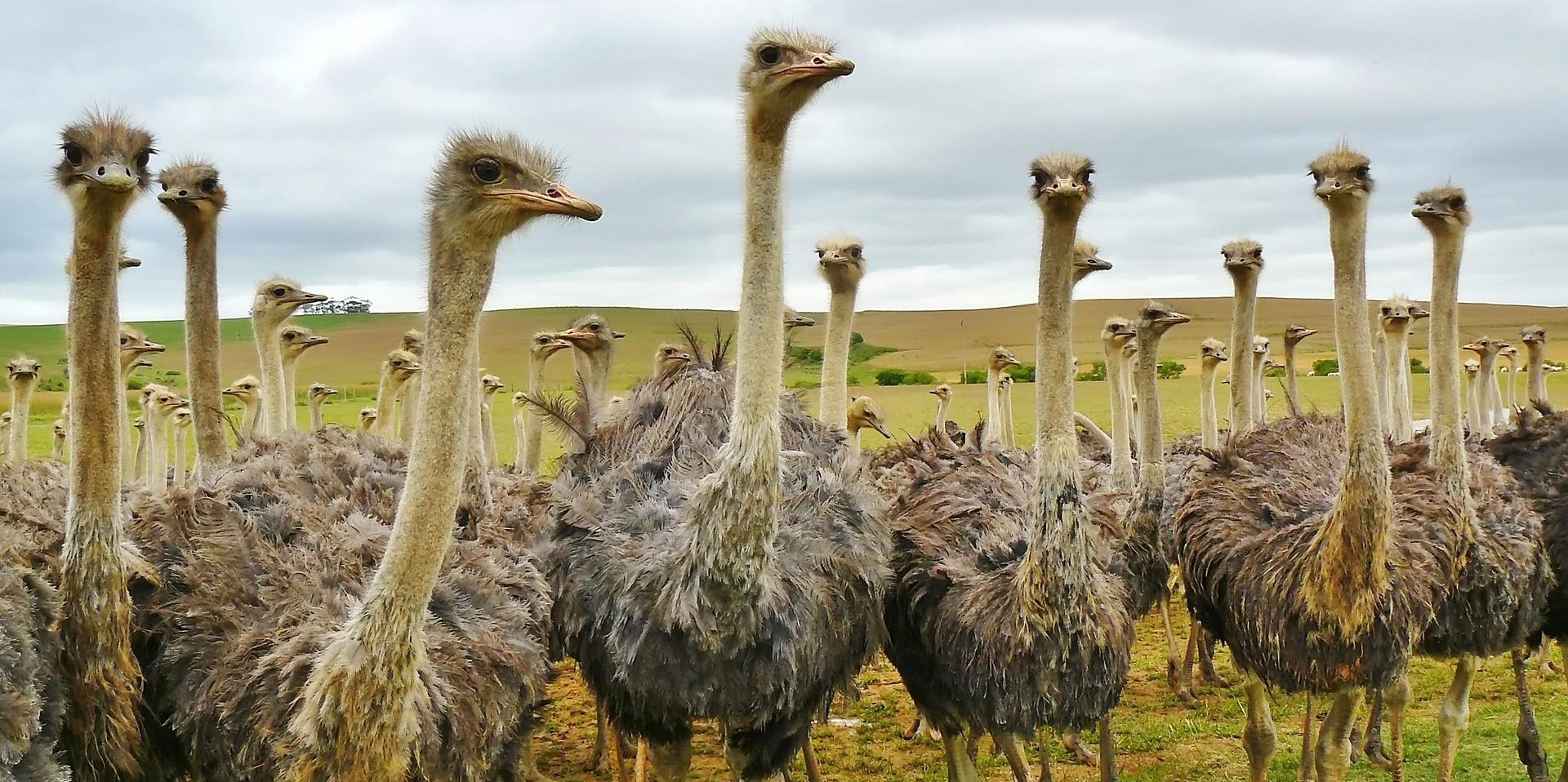Ostriches in the Bible
The ostrich is mentioned several times in Scripture. They used to be common in the biblical lands.
References to the ostrich
“and the ostrich and the owl and the gull and the hawk in its kind” —Lev. 11:16; Deu. 14:15
“I have become a brother to jackals, and a companion of ostriches.” —Job 30:29
Prophecies
But desert creatures will lie down there [in Babylon]… Ostriches also will dwell there… —Isa. 13:21 excerpt
And thorns will come up in its fortified towers,
Weeds and thistles in its fortified cities;
It will also be a haunt of jackals
And an abode of ostriches. —Isa. 34:13
Therefore the desert creatures will live there [Babylon]… the ostriches also will live in it… —Jer. 50:39 excerpt
Joyously flapping wings
The book of Job says,
“The ostriches’ wings flap joyously…” —Job 39:13 excerpt
SEE: More about the Job 39 KJV reference to the ostrich
Tallest and heaviest living bird
Although ostriches cannot fly, they are the fastest birds on land. They use their wings for various important purposes.
They are difficult to capture, and due to their size and speed, the book of Job says,
When she raises herself up high, she laughs at the horse and his rider. —Job 39:18
An ostrich can run faster than any horse.
“Cruel like ostriches”
…the daughter of my people has become “cruel like ostriches” in the wilderness. —Lam. 4:3 excerpt
This allusion is referring to what some ostriches do with their egg nests.
…she leaves her eggs to the earth
And warms them in the dust,
And she forgets that a foot may crush them,
Or that a beast of the field may trample them. She treats her children cruelly, as if they were not hers;
Though her labor be empty, she is without dread,
Because God has made her forget wisdom,
And has not given her a share of understanding. —Job 39:14-17 LSB excerpt
Desert travelers have reported that,
The ostrich is frightened by the least noise, and runs away from her nest, leaving the eggs or young ones without any protection; and very often she does not return for a long time, perhaps not until the young birds have died of hunger.
“The outer layer of eggs is generally so ill covered that they are destroyed in quantities by jackals, wildcats, etc., and that the natives carry them away, only taking care not to leave the marks of their footsteps, since, when the ostrich comes and finds that her nest is discovered, she crushes the whole brood, and builds a nest elsewhere.”
Mournful
The voice of the ostrich can be very mournful, especially when heard at night in a lonely desert. It is said to be like the crying of a hoarse child. It is on this account that the prophet Micah says,
Because of this I must lament and wail;
I must go barefoot and naked;
I must make a lament like the jackals
And a mourning like the ostriches. —Micah 1:8
No longer native to Israel
Although wild ostriches still live in Africa and are feral in Australia, the ostriches of Israel, Arabia, and Asia Minor were hunted to extinction by the middle of the 20th century, and in Israel attempts to introduce ostriches from North Africa to fill their ecological role have so far failed.1
- Zafrir Rinat, “The Bitter Fate of Ostriches in the Wild,” Haaretz (Tel Aviv: December 25, 2007)
More information
